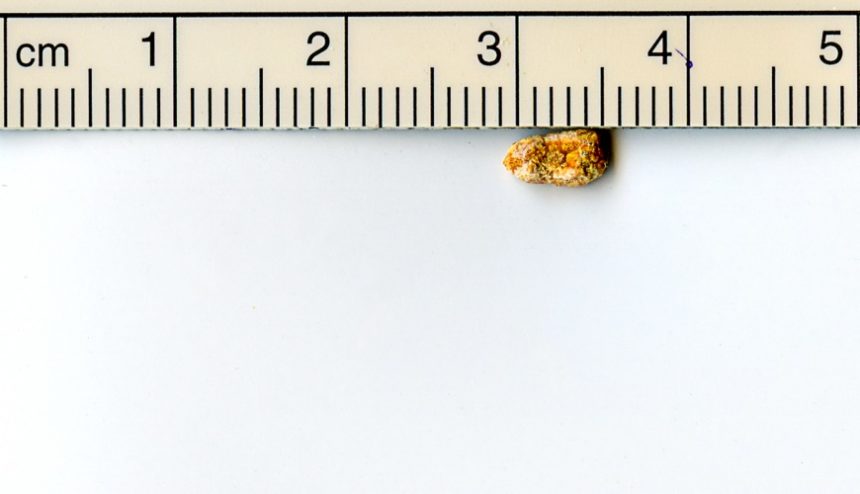By Robert Montenegro, M.D., Family Medicine and Bariatrics
How can something so small hurt so much? A kidney stone can be as small as a grain of sand and make a person suddenly double over in intense pain because of the spasms triggered by the stone stuck in the ureter, along with the pressure in the kidney from urine backup. A non-obstructive kidney stone can cause aching and discomfort sporadically until the stone finally passes. A person typically feels pain on one side of the body, in their back, or on their side. Unfortunately, they are not always easy to identify.
Kidney stones form in the kidneys and consist of minerals and salts. A kidney stone doesn’t usually cause problems until it begins moving around inside the kidney or goes into the ureters, which connect the kidneys and bladder. If the stone becomes stuck in the ureters, it could block urine, leading to a swollen kidney and possibly causing the ureter to convulse painfully.
Symptoms of a kidney stone include:
- Sharp pain below the ribs, in the side and back, radiating to the abdomen and groin
- Painful urination or pink, red, or brown urine that smells bad
- Urinating frequently or in small amounts
- Nausea/vomiting
- Fever/chills
Types of Kidney Stones
There are several types of kidney stones, depending on what caused the stone to form and what it consists of. If you pass a kidney stone, save it so your doctor can have it analyzed to determine the cause.
The different types of kidney stones include:
- Calcium stones—Calcium oxalate is made by the liver or comes from high-oxalate content foods, such as some fruits/veggies or nuts and chocolate. Other causes of calcium stones include vitamin D (high doses), those who have undergone an intestinal bypass procedure, or some metabolic disorders.
- Struvite stones—There are usually few symptoms or advance warnings with struvite stones, which are caused by a urinary tract infection and can grow large quickly.
- Uric acid stones—Losing fluids from ongoing diarrhea or poor absorption of nutrients, high-protein diets, or diabetes causes uric acid stones. Genetics also play a role in increased risk.
- Cystine stones—”Cystinuria” is a hereditary condition. Cystine stones result when the kidneys release excessive amounts of an amino acid.
Reduce your chances of developing a kidney stone by drinking enough water (especially in warm climates or if you sweat heavily) and avoiding diets high in protein and salt/sodium. Losing weight if your body mass index is high is another way to reduce your chance of developing a kidney stone. In addition, some medical conditions or supplements/medicines you are taking could increase the chance of developing kidney stones, so discuss any symptoms or medications with your doctor.
Heredity may also play a role in your chances of getting kidney stones—having one in the past also increases your future risk. Finally, be aware that gastric bypass surgery, ongoing diarrhea, or other conditions could lead to stone formation.


